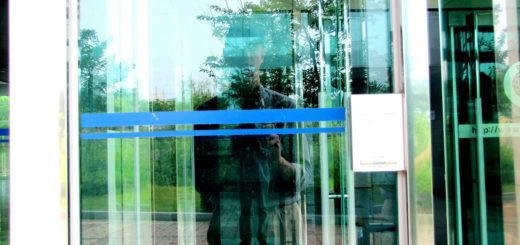Reflections On Old and New Ways
Art and non-art.— Every drama worthy of the name has some sort of implied agenda. The difference between dramatic hackery and dramatic art is that the hack begins with the agenda, and manipulates his characters and scenario around as needed to “prove” it, whereas the artist begins with characters and scenario, and allows these to unfold as feels natural to him until, willy-nilly and perhaps even in contradiction of his prior personal agendas, certain implications arise of themselves, typically implications that could never be fully expressed in literal terms outside of the work, let alone kept under the artist’s control throughout the process of producing his work. Hence, everyone can learn what a modern movie director thinks about whatever subject matter he chooses to address, by watching the first half of his movie. But just try to divine exactly what Kafka the man thinks about guilt by reading The Trial, or what Shakespeare the man believes about Christianity by reading The Merchant of Venice.
Classical vs. modern.– In the concluding chapter of The Closing of the American Mind, Allan Bloom — who it seems, not at all surprisingly, has fallen even further out of favor with the faction that passes for liberal academics today — writes, not with hyperbolic flourish but with summarizing clarity, that, “Men may live more truly and fully in reading Plato and Shakespeare than at any other time, because then they are participating in essential being and are forgetting their accidental lives.” This is what modern man, and above all modern academic man, cannot accept, or even understand. So obsessed are we with our progressive-politics-defined and pop-psychology-driven drivel of “self-expression,” “self-identity,” and “self-esteem,” that nothing could be more alien to our way of thinking than the notion that the only thing that really matters is self-knowledge, unless perhaps it be the further and related notion that the most important step on the path of self-knowledge is the revelation, achieved only slowly and painfully by some, and never at all by most, that “the self” — in the modern sense of “my own unique personality,” “my own idiosyncratic experiences,” “my own authentic feelings” — is the greatest barrier to true understanding, as it is the veil that obscures the permanent nature and purpose that defines us in the end. The “self” entailed in such terms as self-expression, self-identity, and self-esteem, is just an alternative word for “I, this body,” against which the greatest thought and art opposes a more substantial but distant reality: “I, the human essence, irrespective of time and place.”
Unjust God.– For many years, I have used the following question as a class discussion starter: “Do you think good-looking people get unfair advantages in society?” In the past, it was typical for the majority of students — young adults full of semi-innocent vanity and an infatuation with popular celebrities — to answer no. In recent years, however, as modern education, even here in Korea, increasingly evolves into non-stop sensitivity training and the egalitarian denial of reality (the latter being the necessary condition of such fashionable notions as “body positivity” and “inclusivity,” along with negative concepts such as “fat-shaming” and “transphobia”), the balance has gradually tipped in favor of the affirmative answer. At last, within the past week, I have asked two groups, comprising more than forty-five students in total, including a significant proportion from other countries and continents, this same question, and this year the judgment was almost unanimously in favor of the position that good-looking people are unfairly privileged in modern society. Even when I carefully emphasized that the issue of getting advantages is different from the question of these advantages being unfair, the near-unanimous opinion that such advantages not only exist, but are unfair, remained firm.
One European student explained that the source of the unfairness is the fact that people are treated differently based on appearance, while appearance is a matter of chance. I replied, half-jokingly, “Well yes, God makes some people more attractive and some people less attractive, and attractive people tend to get more positive attention. Are you saying God’s will is unfair?” She answered, unhesitatingly, “Yes.”
And this is precisely the point. The conditions handed to us all by God, or Nature, call it what you will, are no longer perceived, as they once were, as merely the truth we have to live with — reality itself providing each of us with the goods, deficiencies, burdensome circumstances, or easy loads that he or she may have, and against which backdrop we must all make our respective ways in the world. No; reality itself, we are now taught to believe, ought to have given everyone the same starting point, such that, to the extent that it fails to do this, reality itself must be judged unfair, unjust, immoral, deserving of correction. This young woman proceeded to argue that some people will be more or less successful in life because people like or dislike the way they look, including their body type, their skin color, and so on. That is true, I replied, but even in such cases I can offer two reasons why it is problematic to judge such circumstances to be unfair.
First, everyone knows that a spoiled child will often amount to very little in the long run, and a young person typically becomes spoiled precisely because of the many early advantages he gains from being more attractive to the people around him, whereas many if not most of the people we might regard as humanity’s greatest benefactors would likely prove, under examination, to have been somehow “unattractive” or otherwise (apparently) disadvantaged in the circumstances of their youth. In other words, how do we even define what is truly an advantage, let alone an unfair advantage? Might not God or Nature have a different scale of judgment than our emotional and immediate scale, which sees only the surface effects of the moment, and not the long-term significance of these effects.
Secondly, on a more personal level, I think it is dangerous for young people, or anyone for that matter, to move into life with the assumption of cosmic and universal unfairness, since this becomes an all-too-easy excuse in one’s mind, a perfect and ready-made rationalization for all one’s failures, disappointments, and uncertainties, until one learns to approach one’s own life with the cynicism of non-effort: “What’s the use? It’s all stacked against me anyway.” In this way, the presumption of unfairness becomes a self-fulfilling prophecy.
But progressivism, in all its forms, preaches the essential unfairness of all unequal circumstances, however natural or nebulous, as the preface to preaching the need for an all-encompassing and inescapable state to correct these inevitable and endless injustices of the cosmos. Hence, within a very brief number of years, the standard answer to my question — “Do good-looking people get unfair advantages?” — has flipped from a general assumption that inequality of natural endowments or social preferences is merely a fact we have to live with, to a general assumption that such inequality is grounds for political or quasi-political activism, i.e., for bemoaning our circumstances rather than learning to overcome them.



